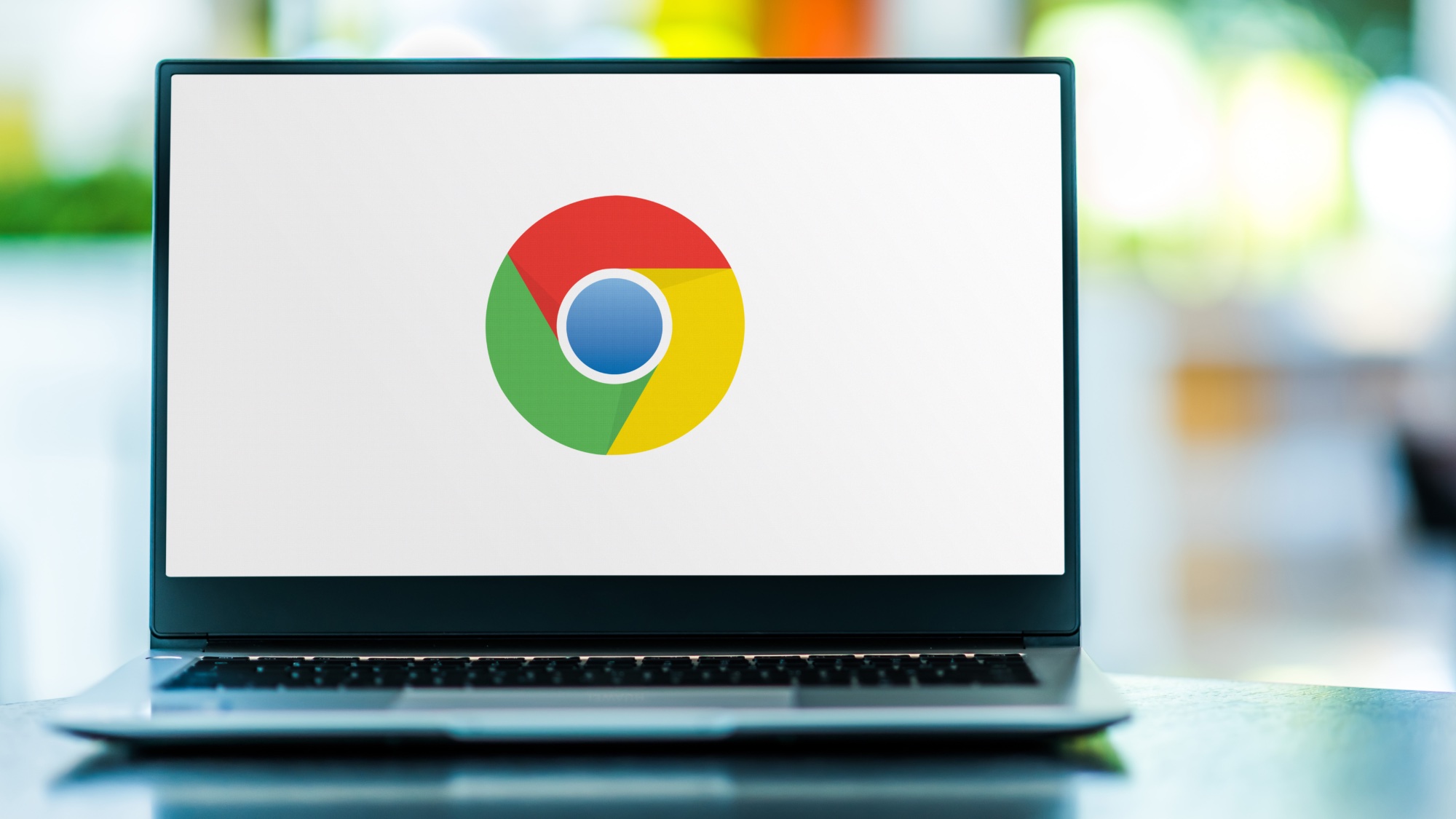I replaced my iPhone with the Apple Watch Ultra — here’s what happened
24 hours without my iPhone
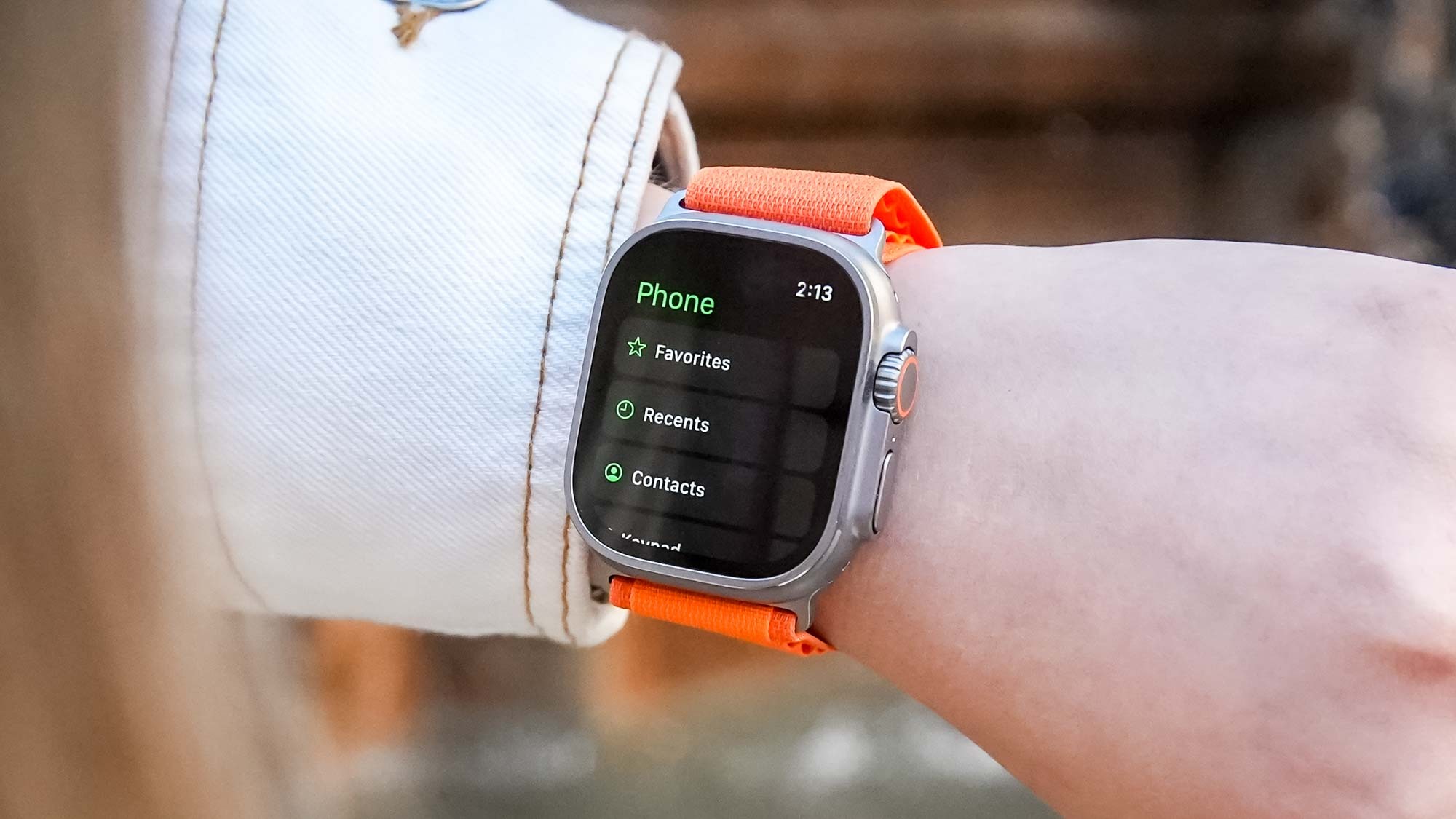
Here at Tom’s Guide our expert editors are committed to bringing you the best news, reviews and guides to help you stay informed and ahead of the curve!
You are now subscribed
Your newsletter sign-up was successful
Want to add more newsletters?

Daily (Mon-Sun)
Tom's Guide Daily
Sign up to get the latest updates on all of your favorite content! From cutting-edge tech news and the hottest streaming buzz to unbeatable deals on the best products and in-depth reviews, we’ve got you covered.

Weekly on Thursday
Tom's AI Guide
Be AI savvy with your weekly newsletter summing up all the biggest AI news you need to know. Plus, analysis from our AI editor and tips on how to use the latest AI tools!

Weekly on Friday
Tom's iGuide
Unlock the vast world of Apple news straight to your inbox. With coverage on everything from exciting product launches to essential software updates, this is your go-to source for the latest updates on all the best Apple content.

Weekly on Monday
Tom's Streaming Guide
Our weekly newsletter is expertly crafted to immerse you in the world of streaming. Stay updated on the latest releases and our top recommendations across your favorite streaming platforms.
Join the club
Get full access to premium articles, exclusive features and a growing list of member rewards.
Normally, I don’t go anywhere without my iPhone. Over the years, I’ve come to rely on it to get through the day. But while testing the new Apple Watch Ultra — Apple’s most premium smartwatch to date — I started to realize it can do a lot of what my iPhone does.
Priced at $799/AU$1,299, the Apple Watch Ultra costs as much as the entry-level iPhone 14. So, could someone get by using the Apple Watch Ultra as their phone? Determined to find out, I ditched my iPhone for 24 hours and depended solely on a smartwatch with cellular support to stay connected.
After locking my iPhone away, I set out on a regular routine of errands and activities with the Apple Watch Ultra secured to my wrist. Here’s how it went.
Communication
The Messages app is the biggest culprit in my iPhone’s screen time report. I’m constantly texting my friends and family, whether it’s to make plans or stay in touch with those who live far away. And while I’ve long used the Apple Watch to send occasional texts via dictation, not having my iPhone meant I could only send messages from my wrist.
Luckily, the Apple Watch Ultra’s 49-millimeter display made the QWERTY keyboard more usable. Side-by-side with the 45-millimeter Apple Watch Series 8, the keyboard letters are the same size but they’re spaced slightly farther apart, making it easier to type without mistakes.
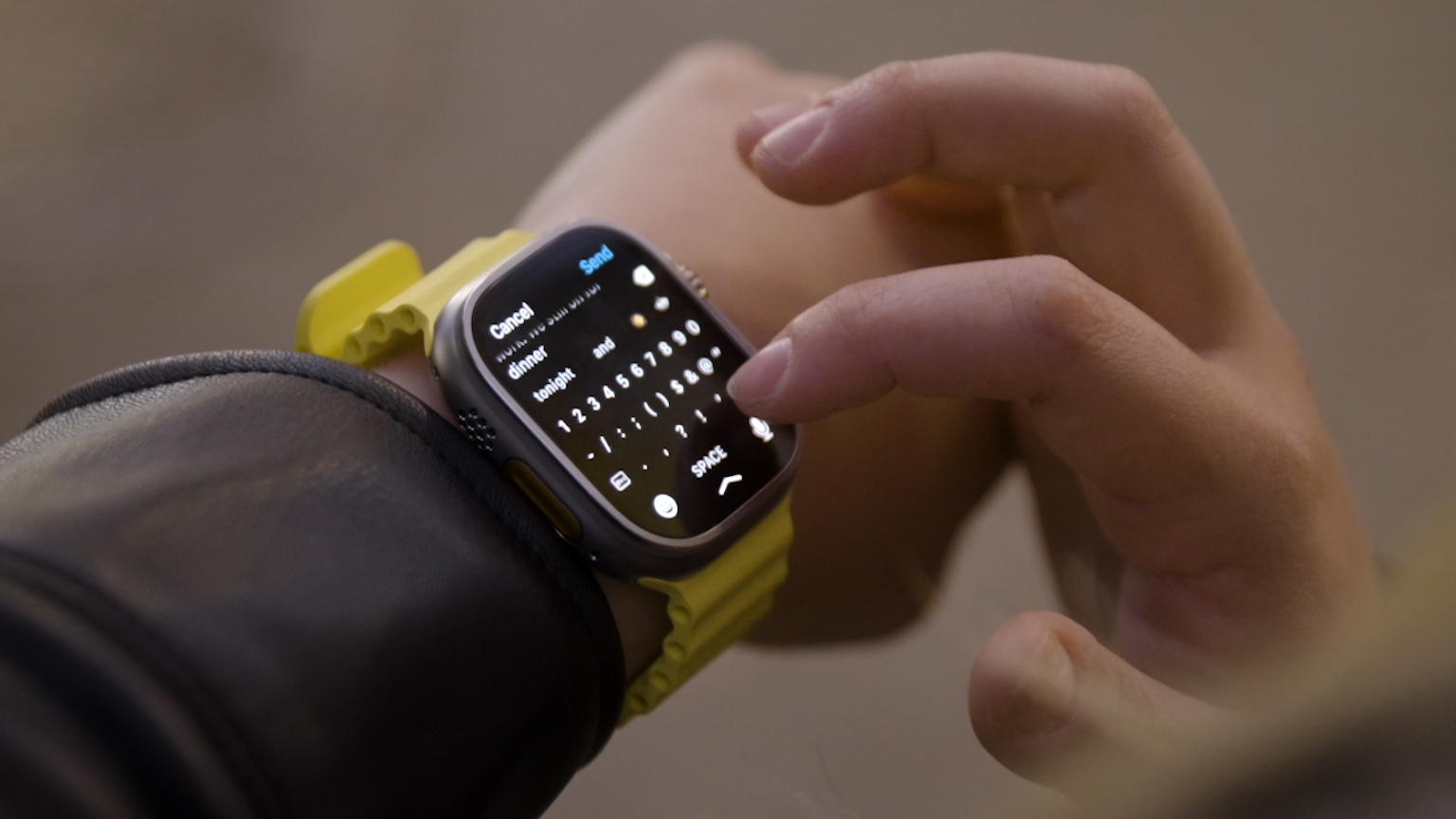
That said, I still couldn’t send texts as quickly as I can through my iPhone, even with a combination of typing and voice-to-text. This encouraged me to make more phone calls than I typically do. Pairing my Apple Watch with the AirPods Pro (2nd Gen) offered the best experience, but I also put the Apple Watch Ultra’s built-in speakers and microphones to the test. In order to truly replace my phone, the watch needs to be suitable for phone calls independently, after all.
I compared the Apple Watch Series 8 vs. Apple Watch Ultra’s native call quality by leaving voicemails through each smartwatch. Not only did the Apple Watch Ultra’s beefier speakers make it easier to hear the mailbox tone, but listening to the two recordings, the Ultra did a noticeably better job at filtering out background noise through the microphones. Even though I made the calls from a busy area in midtown, only my voice came through on the Ultra's voicemail. On the Series 8, I could hear more wind and ambient noise.
Get instant access to breaking news, the hottest reviews, great deals and helpful tips.
Navigation
Whether it’s for walking directions or subway information, I need help navigating New York City on a daily basis. I usually use Google Maps or Apple Maps on my iPhone to check my route options and reach my destination; with only the Apple Watch Ultra, I worried I’d end up lost.
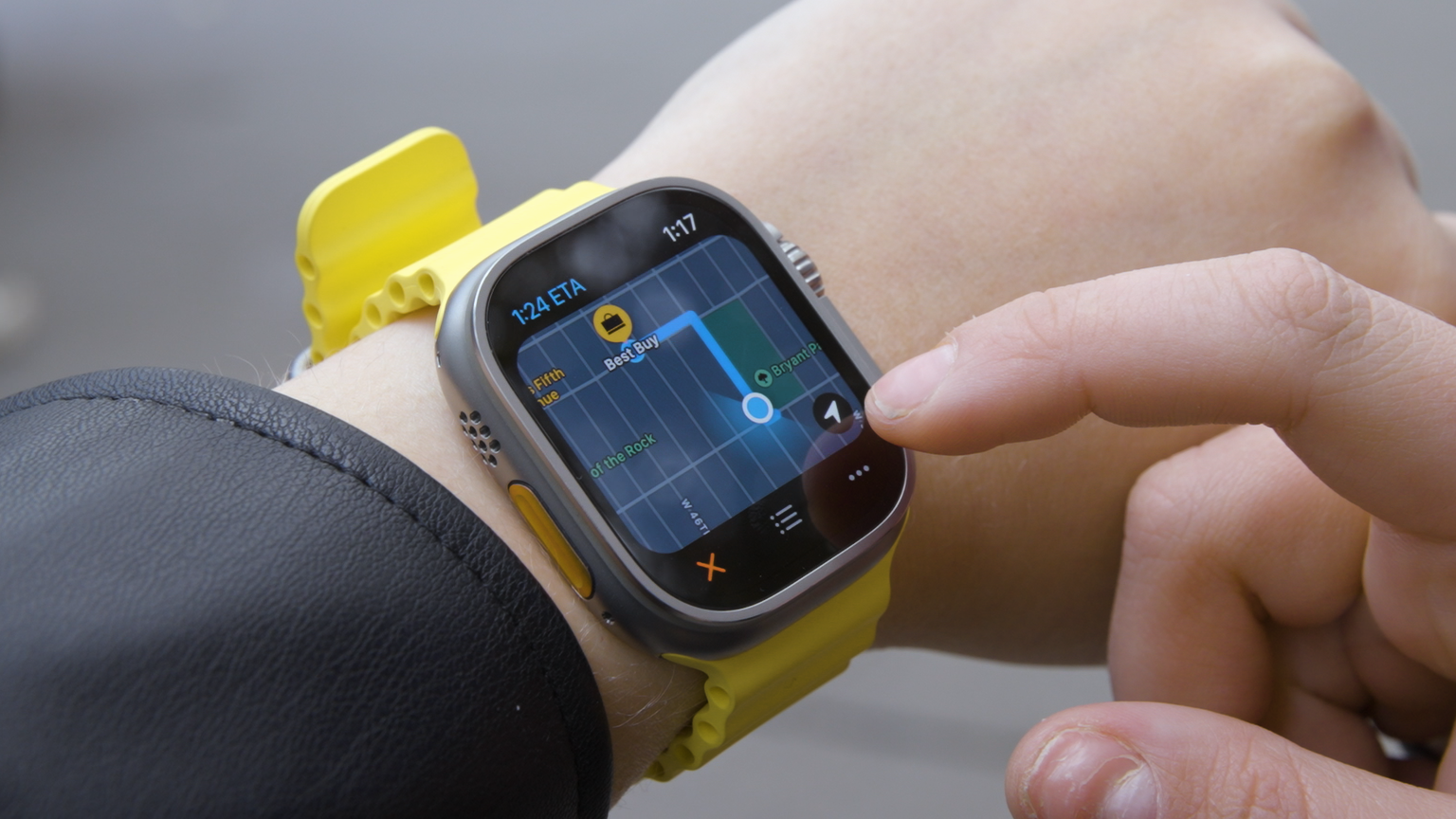
Yet when I wanted to find the nearest Best Buy to pick up a new SD card for my camera (since I didn’t have an iPhone to take photos, obviously), the watchOS version of Apple Maps worked better than I expected. It let me search for the store’s location and then led me there with turn-by-turn directions. Helpful haptics on my wrist warned me when I needed to make a move.
My next stop, Central Park, required me to get on the subway. My Apple Watch Ultra took me to the right subway station, informed me which train to get on and even let me know how far away the next train was. Once on the train, it alerted me one station ahead of where I needed to get off that I should prepare to exit. As someone who has missed my stop before, I found this feature extremely helpful.
Once on the train, it alerted me one station ahead of where I needed to get off that I should prepare to exit. As someone who has missed my stop before, I found this feature extremely helpful.
But it was also on the train when I first missed my phone. I like to do the New York Times Crossword or check emails during my commutes. If I had planned better, I might’ve brought a book; instead, I resorted to listening to an Apple Fitness Plus audio meditation downloaded in the Apple Watch’s Mindfulness app.
Payments
To buy my SD card and pay my subway fare, I used Apple Pay via NFC on the Apple Watch Ultra. Checking out at Best Buy felt pretty much the same as checking out with my Apple Pay on my iPhone — I raised my wrist to the POS terminal, and double-clicked the side button (not the Ultra’s third Action button) to confirm payment with my Apple Card.
For the subway, I set up express transit pay on my Apple Watch. In markets where mobile payments are supported, express transit lets you tap your mobile device at the stile to pay your fare. I use this feature through New York’s OMNY program on my iPhone almost every day, but I hadn’t tried it with my Apple Watch before this challenge. No surprise, it’s just as simple.
Apple Cash is the final way I tested paying with the Apple Watch Ultra. I usually prefer Venmo or Zelle for peer-to-peer payments, but neither have Apple Watch apps. So, when it came time to pay my friend for my portion of the dinner bill, I opened my text conversation with them and used the in-text app menu to send them the money through Apple Cash.
Safety
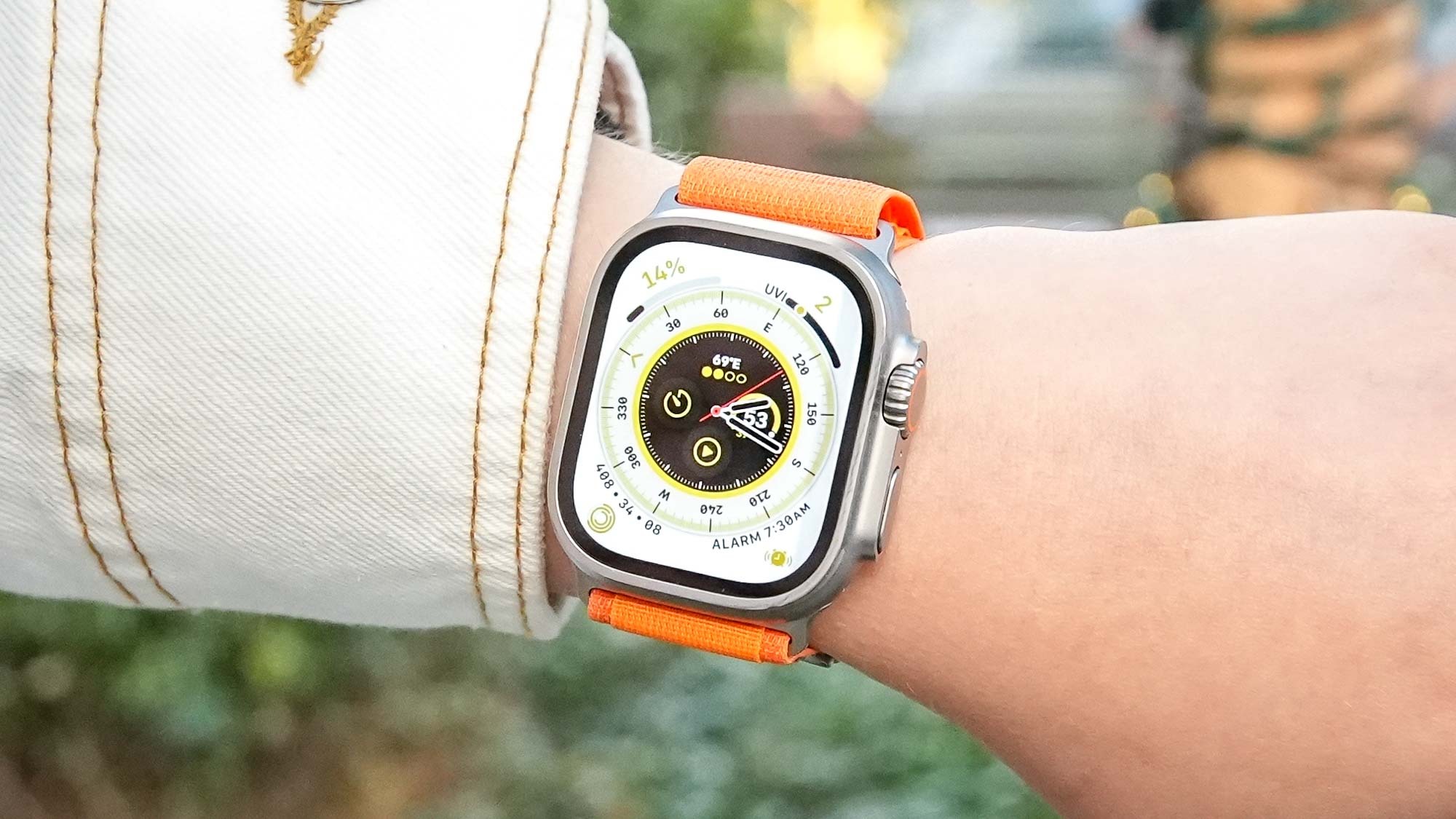
Walking home from dinner in the dark without my iPhone gave me some anxiety. It wasn’t a particularly perilous journey back to my apartment, but as a woman in a big city, my personal safety is a permanent priority. In a perfect world, I could walk home without fear, but an Apple Watch Ultra provides some peace of mind in the meantime.
In a perfect world, I could walk home without fear, but an Apple Watch Ultra provides some peace of mind in the meantime.
One feature exclusive to the Apple Watch Ultra is a built-in siren that rings an 86-decibel alarm. It can apparently be heard up to 180 meters away. Even knowing how to use the Apple Watch in case of emergencies, this siren offers a way to bring attention to a dangerous situation. While the alarm seems intended for the wilderness, it’s something I’m just as glad to have in the big city. In fact, if I’m lost in a remote area, I’d rather have the iPhone 14’s Emergency SOS via satellite feature than the Apple Watch Ultra’s alarm.
Health and fitness tracking
The second day without my iPhone, I woke up to my Apple Watch Ultra’s alarm buzzing my wrist. Then I checked whether it took care of business overnight. My sleep-tracking data populated quickly, and compared to the data from my Oura Ring and Amazon Halo Rise (what can I say? I like sleep-tracking tech), my overview checked out. The Ultra also has the new Apple Watch skin temperature sensor, which is best applied for ovulation predictions and cycle tracking, but also can detect deviations for sleep tracking.
Once I wiggled out of bed, I got dressed for the gym to get my workout in and make some progress on my Apple Watch rings. These days, I use the Lululemon Studio Mirror, but I can’t search or launch classes without my iPhone. I suppose I could’ve installed the companion app on my iPad, but that seemed to go against the spirit of the challenge.
I settled on a short run on the treadmill. I even tried Time to Run on Apple Fitness Plus for the first time, enjoying some old-school hip-hop while listening to running coach Cory give a history lesson on Savannah, GA. The best part? My gym’s machines are GymKit-equipped, so my Apple Watch’s metrics were conveniently mirrored on the treadmill’s display.
Since the Apple Watch is a full-featured fitness tracker, I can’t say I missed my iPhone for exercising that much. I take studio classes from time-to-time, and it’s usually frowned upon to have your phone with you anyways. I also know now for an outdoor run, bike ride or walk, I could leave my phone behind. The Apple Watch has new running features that make it more equipped than before for training, too.
Battery life
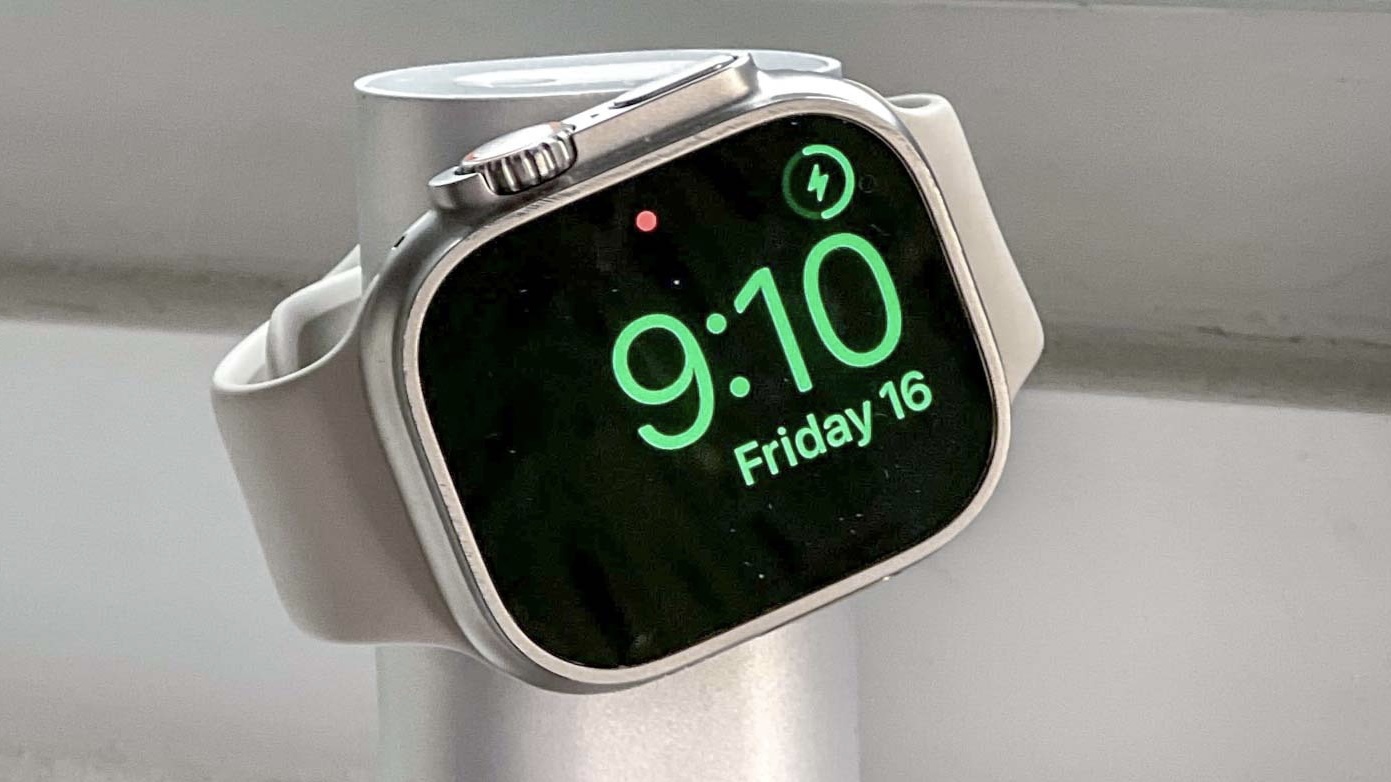
Whereas the iPhone 14 lasted an unremarkable 9 hours and 28 minutes in our latest battery test, the Apple Watch Ultra is rated for 18 hours of battery life with continuous LTE use — nearly double. In my experience, the Apple Watch’s estimate checks out. When I woke up the second morning of the challenge, approximately 18 hours since I’d powered down my iPhone and locked it away, my battery life was down from 100% to 8%.
If I wanted the Apple Watch Ultra battery life to last up to 60 hours as estimated with low power mode, I’d need to be more mindful about which features I use.
Normally, the Apple Watch Ultra lasts nearly 2 days on a full charge, making the best Apple Watch yet in terms of battery life. But frequent GPS use, LTE-powered phone calls and activity-tracking data took a toll on the watch’s stamina. I enabled the Apple Watch low power mode at dinner, since I didn’t need my watch for anything during the meal, but it didn’t make a major difference when used for only an hour. If I wanted the Apple Watch Ultra battery life to last up to 60 hours as estimated with low power mode, I’d need to be more mindful about which features I use.
I ended up charging the Apple Watch Ultra in the morning before my workout. After about 20 minutes, I knew I’d have just enough juice to get me through the end of the challenge.
Replacing my iPhone with the Apple Watch Ultra: Would I do it again?
At the end of 24 hours, I retrieved my iPhone from the locked cabinet at my office. But to my surprise, I wasn’t overjoyed to be reunited with my smartphone and its flood of missed notifications. I had managed just fine during this challenge. I’ll go as far as to say I appreciated the break. I’m confident I checked my watch more often than usual, but not nearly as much as I check my phone out of habit. Less screen time, in my opinion, is a good thing.
Don’t get me wrong, there are plenty of things I couldn’t do with my iPhone. I couldn’t upload any videos to the Tom’s Guide TikTok account or see any of my friend’s stories on Instagram. I couldn’t scan the menu QR code at the restaurant I went to for dinner, nor could I distract myself during my commute. I also couldn’t take any pictures if I didn’t have a mirrorless camera with me. I suppose something like Wristcam could be a solution – it’s an inventive Apple Watch band with built-in, dual-facing cameras — but it costs $299/AU$453, making for a rather pricey package when paired with an Apple Watch Ultra.
So, even with a longer battery life, larger screen and LTE, the Apple Watch Ultra is no iPhone. Yet this challenge showed me how many of the things it does just as well as a smartphone. In some use cases, I think the Apple Watch might even be better than an iPhone. At the very least, the Apple Watch Ultra is the closest thing to an iPhone replacement I’ve ever seen.

Kate Kozuch is the managing editor of social and video at Tom’s Guide. She writes about smartwatches, TVs, audio devices, and some cooking appliances, too. Kate appears on Fox News to talk tech trends and runs the Tom's Guide TikTok account, which you should be following if you don't already. When she’s not filming tech videos, you can find her taking up a new sport, mastering the NYT Crossword or channeling her inner celebrity chef.
 Club Benefits
Club Benefits










